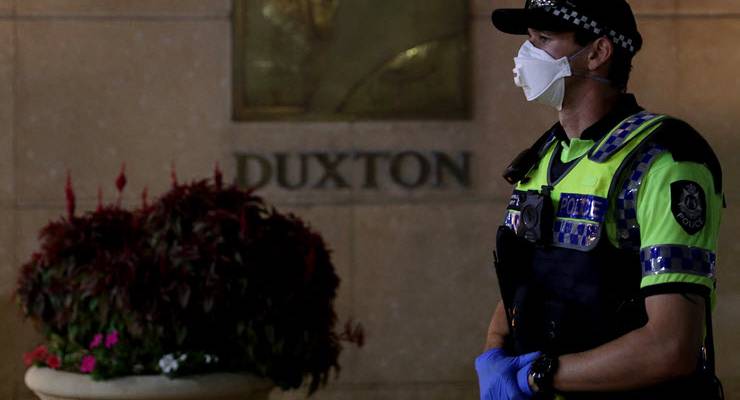
The Victorian hotel quarantine debacle has glossed over a more important question: why are we using hotel quarantine at all? Other than New Zealand, virtually no other country forcibly requires returning residents to be essentially imprisoned in a hotel room for 14 days.
At the time the Morrison government introduced the policy, on March 29, the main concern was people getting off infected cruise ships and planes and failing to quarantine at home.
Back then the concern was justified — especially since almost all the COVID cases earlier in the year had been returning travellers (community transmission remained low during the first wave).
But that was six months ago. We now live in a very different world.
For a start, there’s the obvious inconsistency. If you test positive to COVID-19, you are asked to quarantine at home. That is, the Australian government trusts you to do the right thing. By contrast, if you are returning from overseas and test negative, you are still required to stay in a three-star hotel for 14 days.
Up until July, this was all at taxpayer expense (Victoria and ACT have not yet stipulated any costs for returning travellers, but theses states are also not currently accepting international flights).
So to clarify: if you test positive to COVID, please stay home. If you happen to come from another country and test negative to COVID, you’re staying at the Rydges for two weeks.
It’s also baffling that, unlike other countries such as Singapore, the Australian government treats residents returning from every country the same way. If you come from India (92,000 cases per day) you are subject to the exact same requirements as if you came from Vietnam (one case per day).
Moreover, the quarantine period is excessively long. While the virus’ incubation period does extend to 14 days, the median time for symptoms to present is around five days. Taiwan, the gold standard of COVID management, requires only five days of quarantine for those returning from low-risk countries.
Then there’s the other issue: as Victoria showed, hotel quarantine is far from foolproof. It relies on a number of checks and balances and human intervention (not to mention, it’s expensive — travellers are charged around $3000 for the stay). While Victoria was the high watermark of incompetence, it certainly was not alone — NSW and WA have also had their own hotel quarantine issues.
Given Australia has (rightly or wrongly) pursued a policy of elimination, it would make far more sense to allow returning travellers to quarantine at home under strict conditions.
The most obvious would be to require a negative test: provide a rapid test upon return and then utilise a location tracker like electronic ankle tags (or the Singapore/Canada model, which involves check-ins via phone). If a person under home quarantine breaches quarantine (or has a guest in their residence), they would be heavily fined ($10,000+) and forced to spend three weeks in a hotel. Random in-person checks could also be used.
There are an estimated 25,000 Australians currently overseas wanting to come home, and who knows how many non-Australian residents who are desperate to see family. Rather than allowing them to come home and taking common sense measures, the government continues to force an expensive, slow and failed system that is used almost nowhere else in the world.








Crikey is committed to hosting lively discussions. Help us keep the conversation useful, interesting and welcoming. We aim to publish comments quickly in the interest of promoting robust conversation, but we’re a small team and we deploy filters to protect against legal risk. Occasionally your comment may be held up while we review, but we’re working as fast as we can to keep the conversation rolling.
The Crikey comment section is members-only content. Please subscribe to leave a comment.
The Crikey comment section is members-only content. Please login to leave a comment.